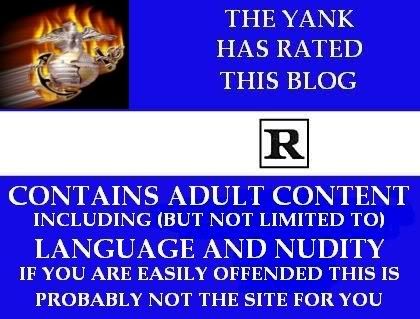Life in New Zealand: What's It Like?
I guess that after nearly four years living and working in New Zealand it would be a good time to tell you all a bit about some of my experiences here. I'll gloss over the general stuff and just tell you that the natural beauty of the country itself goes without saying. I have only seen a tiny, tiny portion of the country personally, and what I have seen is beautiful. I would love to see more of the country, but trying to arrange my vacation time with Mae's and the kids' in order to do that is nearly impossible. Combine that with the increasing cost of fuel to actually drive anywhere, like to the South Island (which involves driving to the bottom of the North Island and taking a ferry across Cook Strait) and the task becomes financially daunting and virtually out of reach. Public transport is almost non-existent - only buses and air travel for now, and trains are only now being revived (the government sold off the rail system years ago and the purchasers bailed after several years, leaving the infrastructure in tatters, all as a result of a terrible contract that allowed it all to happen that way). Needless to say, the cost of living here is quite high, so there really is never any money left over for us to do much.
What I really want to talk about today is the people and the prevailing political culture. Let me say right now that most Kiwis are very friendly people on a person-to-person basis, and any criticisms that may be expressed herein are not meant to be an indictment nor should they be taken as "Kiwi bashing." They are my opinions based on personal experiences and observations stemming from personal interactions with people I have met and work with, as well as from watching TV news, listening to talk-back radio, and reading the various print media. Based on what I have encountered in most all forms of media, there is no doubt an anti-American sentiment that runs through the culture here. It ranges from outright hatred of all things American (especially US foreign policy) from the far left (which, trust me, makes even the most far left wing-nuts in the US look like patriots) to sarcasm, by which I mean a kind of glee whenever the US appears to stumble or not "get it right." In other words, the media and people, in general, love to gloat at anything they perceive as a failure on our part, the two biggies that come to mind are Iraq and Hurricane Katrina.
A lot of this anti-American sentiment goes back to the mid-1980's when New Zealand declared itself a nuclear-free zone. New Zealand's Prime Minister was David Lange (Labour). The US President was Ronald Reagan. As well as being NATO allies, there is the ANZUS Treaty Alliance (Australia, New Zealand, US). With Lange having declared NZ "nuclear free" the US destroyer, USS Buchanan, was in February 1985 denied entry into NZ waters. As a result, the US suspended its obligations under ANZUS, declaring NZ "a friend, but not an ally". There has since been a big rift between the US and NZ governments, which in recent years has thawed considerably due in large part to a good working relationship between US Secretary of State, Condoleezza Rice and NZ Foreign Minister, Winston Peters. Many New Zealanders are very proud of their stance against a major superpower.
And then, of course, there is President Bush: I would have to say that 9 out of 10 people here think that Bush is a complete, bumbling idiot. And, let's face it, if we are completely honest with ourselves, based on the way the man speaks in public, as many times as he stumbles and fumbles and mangles the English language, you can't blame them. Even you Bush supporters out there, be honest: If he were a Democrat, you would be making the same criticisms. The leader of the free world, regardless of whether or not you agree with his performance or policies, should be able to communicate better than he does. And like it or not, people around the world judge America based on how they perceive our president: They perceive this president as an idiot, and they perceive us as idiots because we elected him. It's that simple, and while it may not be correct, we all know that perception is reality. Let's just say that a great many people here are looking forward to Obama becoming our next president, and the media are pushing that idea very hard. I have called into a few national radio talk shows to give them the other side of the story because far too often they are partially or completely misinformed.
So, how do I handle it, you may be asking yourself? I have quite often been confronted with quips like, "Man that Bush is a real idiot;" "What do you think of Bush?" and, in reference to Katrina, "How does your president let all those people in New Orleans suffer like that?" If I have the time, I try to educate them on how our government works in terms of the division of responsibilities of local, state, and federal government. You must understand that most countries around the world, whether they are "democratic" or not, do not have multi-level government like we do in the US. Most governments have singular, centralized authority, and New Zealand is no exception. A lot of it has do do with mere geographical size - most nations are not anywhere near the size of the US. Which leads to my next point: Most people I talk to have no idea of just how large the US is, and they look at things through the prism of this tiny nation of New Zealand which is about the size of Colorado in terms of square miles. So I have to put it to them in that way; that the US is about the size of 50 New Zealands and has a population about 75 times that of NZ's, that we have half a dozen cities with as many or more people than in all of New Zealand. Then they start to understand.
The one big difference, however, whether people "like" the US or not, is how people view the role of government. Although I have met quite a few people who believe in smaller government, less government regulation, and who want less government interference in their daily lives, most people, especially those under 40 years of age, look to government to solve everything. They believe it is the government's job to engineer society for the overall public good. And that makes for a perfect segue into the next post...
What I really want to talk about today is the people and the prevailing political culture. Let me say right now that most Kiwis are very friendly people on a person-to-person basis, and any criticisms that may be expressed herein are not meant to be an indictment nor should they be taken as "Kiwi bashing." They are my opinions based on personal experiences and observations stemming from personal interactions with people I have met and work with, as well as from watching TV news, listening to talk-back radio, and reading the various print media. Based on what I have encountered in most all forms of media, there is no doubt an anti-American sentiment that runs through the culture here. It ranges from outright hatred of all things American (especially US foreign policy) from the far left (which, trust me, makes even the most far left wing-nuts in the US look like patriots) to sarcasm, by which I mean a kind of glee whenever the US appears to stumble or not "get it right." In other words, the media and people, in general, love to gloat at anything they perceive as a failure on our part, the two biggies that come to mind are Iraq and Hurricane Katrina.
A lot of this anti-American sentiment goes back to the mid-1980's when New Zealand declared itself a nuclear-free zone. New Zealand's Prime Minister was David Lange (Labour). The US President was Ronald Reagan. As well as being NATO allies, there is the ANZUS Treaty Alliance (Australia, New Zealand, US). With Lange having declared NZ "nuclear free" the US destroyer, USS Buchanan, was in February 1985 denied entry into NZ waters. As a result, the US suspended its obligations under ANZUS, declaring NZ "a friend, but not an ally". There has since been a big rift between the US and NZ governments, which in recent years has thawed considerably due in large part to a good working relationship between US Secretary of State, Condoleezza Rice and NZ Foreign Minister, Winston Peters. Many New Zealanders are very proud of their stance against a major superpower.
And then, of course, there is President Bush: I would have to say that 9 out of 10 people here think that Bush is a complete, bumbling idiot. And, let's face it, if we are completely honest with ourselves, based on the way the man speaks in public, as many times as he stumbles and fumbles and mangles the English language, you can't blame them. Even you Bush supporters out there, be honest: If he were a Democrat, you would be making the same criticisms. The leader of the free world, regardless of whether or not you agree with his performance or policies, should be able to communicate better than he does. And like it or not, people around the world judge America based on how they perceive our president: They perceive this president as an idiot, and they perceive us as idiots because we elected him. It's that simple, and while it may not be correct, we all know that perception is reality. Let's just say that a great many people here are looking forward to Obama becoming our next president, and the media are pushing that idea very hard. I have called into a few national radio talk shows to give them the other side of the story because far too often they are partially or completely misinformed.
So, how do I handle it, you may be asking yourself? I have quite often been confronted with quips like, "Man that Bush is a real idiot;" "What do you think of Bush?" and, in reference to Katrina, "How does your president let all those people in New Orleans suffer like that?" If I have the time, I try to educate them on how our government works in terms of the division of responsibilities of local, state, and federal government. You must understand that most countries around the world, whether they are "democratic" or not, do not have multi-level government like we do in the US. Most governments have singular, centralized authority, and New Zealand is no exception. A lot of it has do do with mere geographical size - most nations are not anywhere near the size of the US. Which leads to my next point: Most people I talk to have no idea of just how large the US is, and they look at things through the prism of this tiny nation of New Zealand which is about the size of Colorado in terms of square miles. So I have to put it to them in that way; that the US is about the size of 50 New Zealands and has a population about 75 times that of NZ's, that we have half a dozen cities with as many or more people than in all of New Zealand. Then they start to understand.
The one big difference, however, whether people "like" the US or not, is how people view the role of government. Although I have met quite a few people who believe in smaller government, less government regulation, and who want less government interference in their daily lives, most people, especially those under 40 years of age, look to government to solve everything. They believe it is the government's job to engineer society for the overall public good. And that makes for a perfect segue into the next post...
Labels: Living in New Zealand, Personal Ramblings









0 Comments:
Post a Comment
<< Home